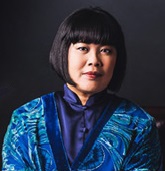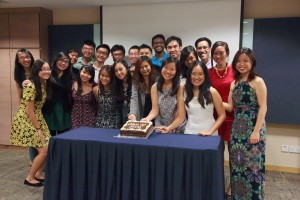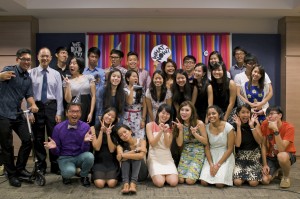Dr Susan Ang, who teaches literature, was conferred the Outstanding Educator Award (OEA) at this year’s University Awards. The OEA is the University’s highest teaching award and is given out annually to a faculty member who has been truly exemplary in his or her role as an educator. Among other subjects, Dr Ang has taught modules on Romantic literature, tragedy, science fiction and modern poetry. She shares a part of her teaching philosophy below where, for a while, she envisions herself as a “tiger mom”:
On Tiger Moms and Cubs
A few months ago I was a little taken aback (not to mention mildly dismayed) when one of the graduating class said cheerfully to me, “Student X said that as a lecturer, you were a Tiger Mom.” It wasn’t meant insultingly and, indeed, was even meant as a backhanded compliment of a sort. But the phrase connotes a certain aggressiveness, ruthlessness and pushiness, all of which I think of as alien to the way I do things, and it was only when another student said, “Tiger Moms train up competent cubs who are properly equipped to survive,” that I began to appreciate the comment a bit more.
When one teaches, one teaches to the whole, or integrated, person, not just the part of the student engaged in learning the skills on one’s modules. If the objective of teaching is the training up of competence, I would like to train the students–or cubs–to be “competent,” not only in our shared discipline, but in larger, more general, ways that will affect not just their “survival” in the university but also in the wider world after they graduate.
A specific example of something that I do try to “teach” that has ramifications both for competence in the discipline, and also in a more extended sense, is dealing with difficulty. I would like to show students how to manage difficulty rather than avoid it, gravitating towards the former practice partly in memory of my own experience as an A-level student when I wanted to drop Maths, which my parents permitted (albeit unhappily). Finding that I could not manage Economics either (I thought that being unable to differentiate the x-axis from the y-axis was good evidence for this), I asked to drop Economics as well and substitute Music, but my father, despite the weeping, wailing and gnashing of teeth, refused to allow this: “If I say yes, you’ll get the idea that the way to deal with things you find tough or boring is to drop them. There will be plenty of things in life that you find tough and/or boring. You can’t drop them all. So learn to cope with it.” So both the principles of “stickability” (“stick with it”) and “learning to cope with difficulty” became something both to be internalized as part of my own teaching philosophy, and to be passed on, in turn, to my students. This represents a significant part of the “competence” I seek to inculcate and is less praxis than a whole attitude of mind.
The point, however, is not to throw “difficulty” at students and leave it at that. The point is to teach them how to manage it, the intention being that there should be mastery of higher-order material as well as the pedagogical acquisition of methods for dealing with the complex/difficult but also, equally importantly, that they should learn to be courageous about facing things that are intransigent and hard. That is an attitude of mind that will equip them to survive in the wider world beyond the university.


